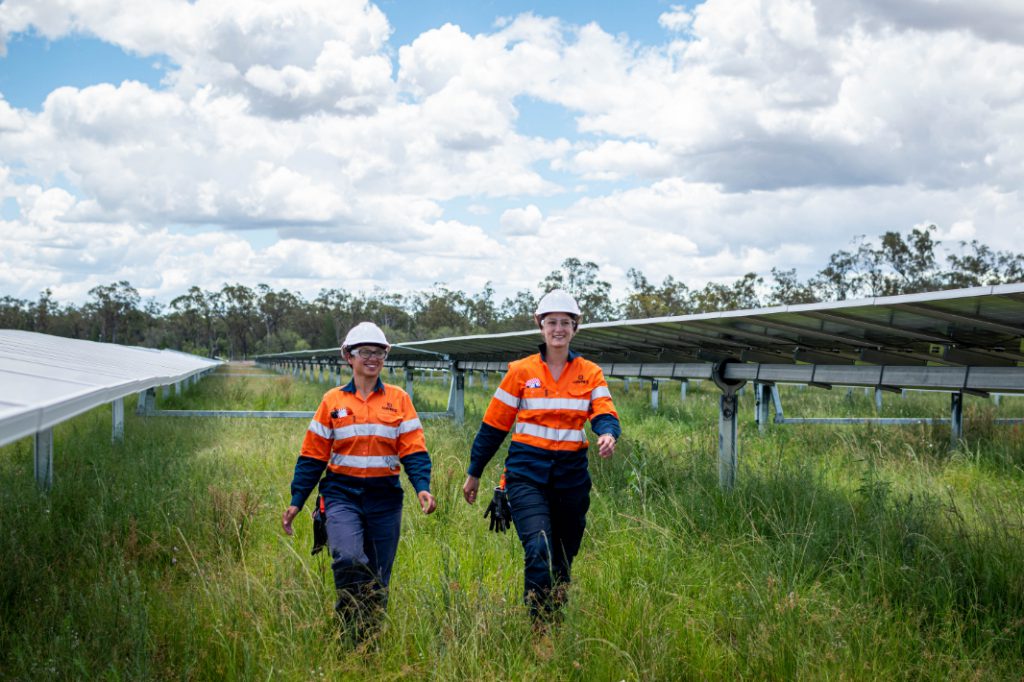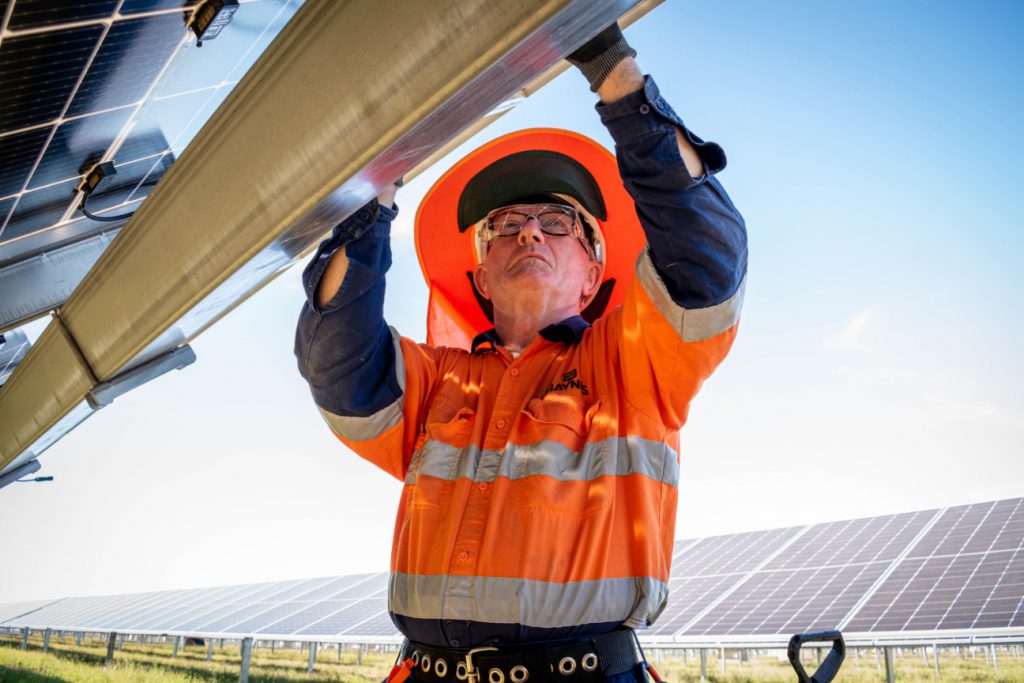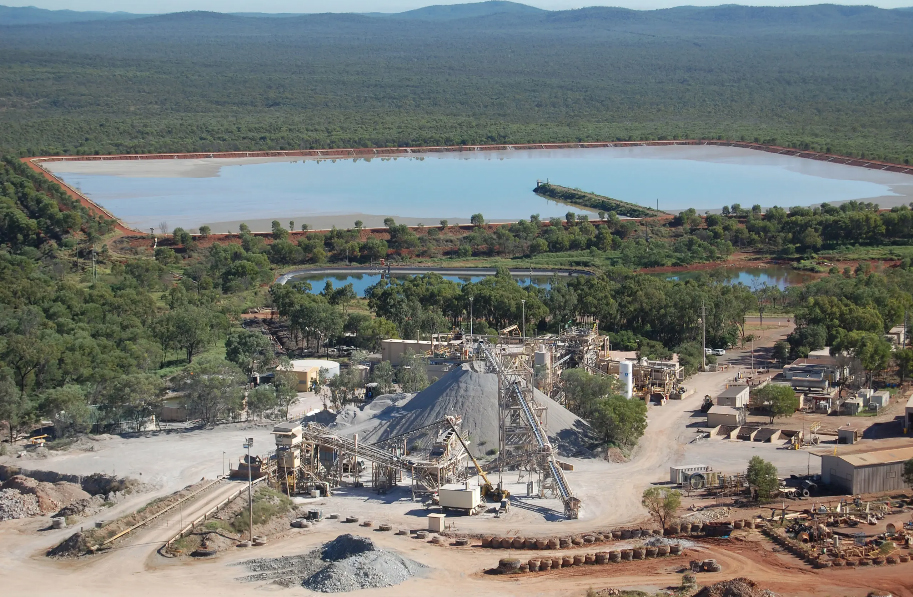162 MW
SIZE
410,000
PANELS INSTALLED
493
PEOPLE RECRUITED
The Challenge
In 2021 Sterling and Wilson and GCo Solar began construction on 162 megawatt solar farm approximately 36 kilometres west of Chinchilla.
They approached us to recruit and mobilise a workforce to complete the project. Due to the nature of a solar project, the roles were required to be filled in different stages to meet labour demands as the various build stages progressed.
Chinchilla is a small remote town approximately four hours’ drive west of Brisbane, with a regional population of approximately 7,000 people, most of whom are agricultural workers or work on other solar projects in the region. Therefore, recruiting from the local population on a project of this scale was not a viable option.
This is often the case with solar projects as they typically located in remote areas and therefore are mostly staffed by migrant workers. Particularly those on working holiday visas looking to complete their prescribed minimum period of “specified subclass 417 work” by working in construction in a regional area. In total, the number of workers required for the entire project would be approximately 500.
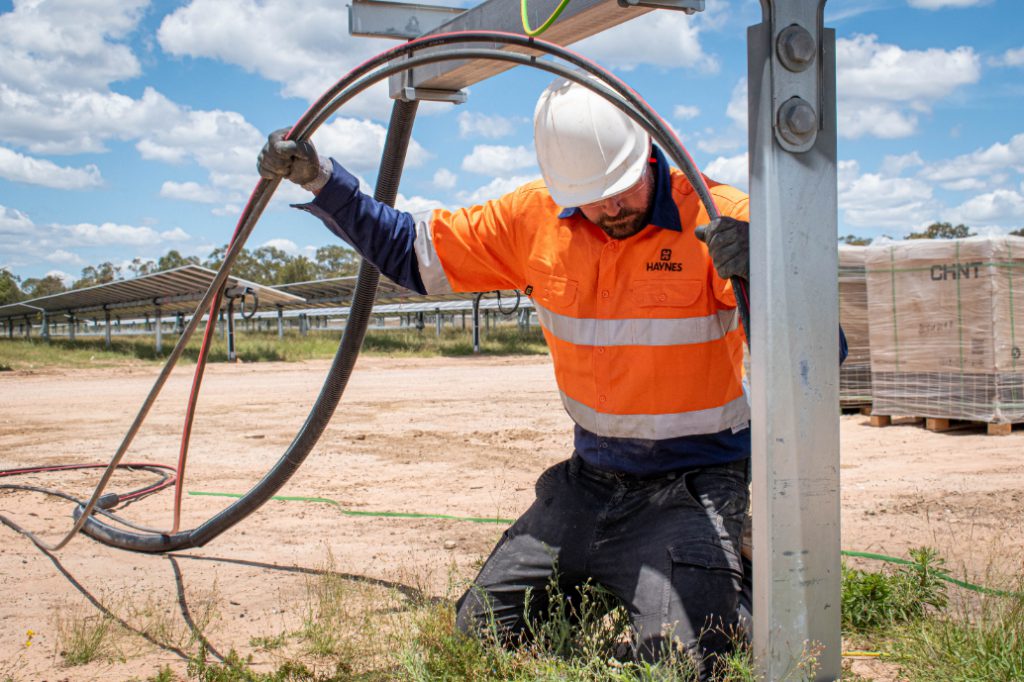
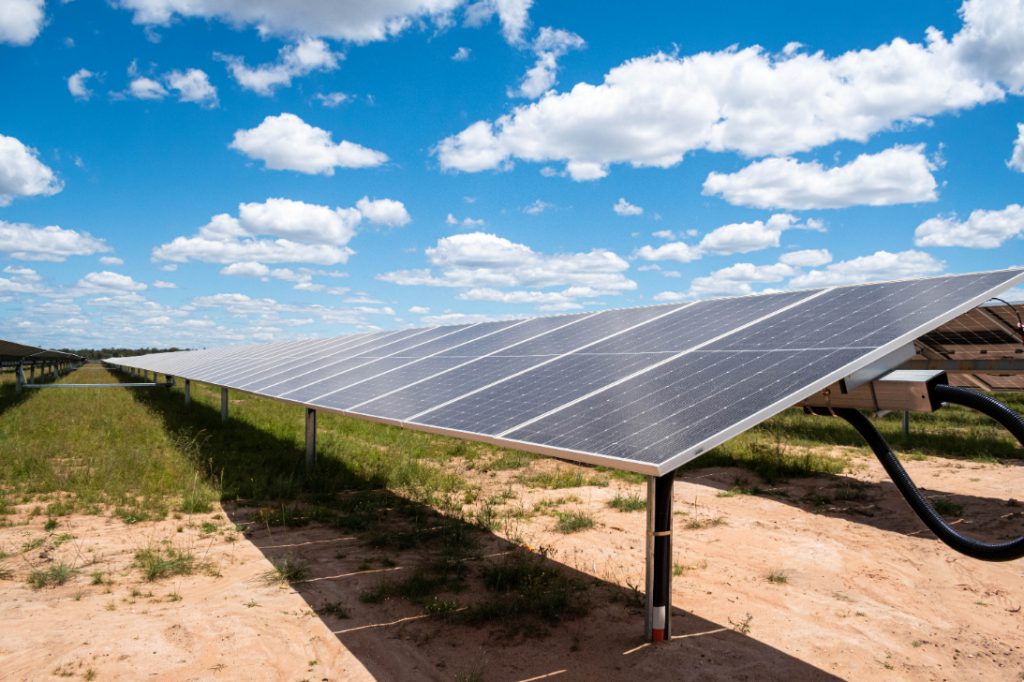
The Solution
As this was a bulk recruitment project, we allocated six staff to ensure we hit all our client’s deadlines.
The Haynes team commenced recruitment on 11th March 2021, with the client requiring an initial 57 people in the first two weeks to get the project up and running. This included
27 Mechanical Labourers, 14 Mechanical Labourer Leading Hands, 10 Forklift & Telehandler Operators, 2 Quality Control
Officers, 1 Site Administrator, 3 truck drivers.
Our extensive work within the solar industry means we have a large database of experienced candidates inducted and ready to relocate for a new project. We also have a reputation among international travellers/migrant workers as a supplier of work within the solar industry, meaning we have a continuous stream of candidates approach us, which constantly refreshes our solar worker database. Our team began immediately recruiting workers directly recruiting from this database.
To maximise our reach for potential workers, we advertised across multiple job platforms such as Seek as well as social media including Facebook and LinkedIn and screened candidates as they applied.
Onboarding Process
Flexible Workforce
Like all solar farm projects, Coolumboola was built in three stages: civil works, mechanical works and electrical works.
Haynes enlisted to supply labour for the mechanical and electrical stages of the project.
Between March and May 2021, we recruited 299 people to complete the initial mechanical works for the solar farm. This included 76 Mechanical Labourers, 14 Mechanical Labourer Leading Hands, 12 Forklift & Telehandler Operators, 5 Quality Control Officers, 1 Site Administrator, 3 truck drivers and a Leading Hand Logistics Operator. As the majority of these were unskilled labouring positions, we were able to source international workers to fill many of these positions.
From July to September, we recruited 194 people for the electrical works at Columboola, consisting of 56 Trade Assistants (after an initial probation period 29 of the trade assistants were promoted to a higher pay level due to their experience and safe, positive attitude), 29 Electricians, 3 Leading Hand electricians. The qualified electricians were required to be certified by Australian standards and hold a QLD Electrical Licence therefore it was difficult to source these workers in such a remote area. We had to use our extended networks throughout Australia to attract workers for the project. Our team also targeted rooftop/domestic solar workers from previous job advert campaigns and worked with the client to upskill them once
they arrived on site.
As the project progressed through the different stages, the client would request to upscale or downscale different areas of the workforce. During construction, Chinchilla received the most amount of rainfall it had received for a more than a decade, resulting in work ceasing until the land was dry enough to continue. Our team were in constant contact with the workers through text messaging, emails, and phone calls as well as our on-site liaison officer to communicate when work was ceasing and resuming. At the time there were multiple solar projects underway in the same region so maintaining positive relationships with our employees was essential during these times to minimise loss of personnel to other employers.
However, at one point during the Columboola project, the COVID-19 pandemic had impacted supply chains and there was a two month delay on the delivery of solar panels.
This meant the workforce had to be majorly scaled back, with construction virtually coming to a halt.
Our team worked hard to maintain the workforce; providing as much work as possible to them in the interim, staying in regular contact with project updates and keeping them ‘warm’ for when work resumed. Once the panels arrived, we were able to
retain the majority of those who were stood down to continue work on the project
Despite numerous challenges associated with this project, the Haynes team ensured that impacts to productivity due to workforce issues were kept to an absolute minimum. With a total of 493 employees recruited and onboarded through Haynes, our clients benefitted from our proactive recruitment methods and our thorough and attentive approach to workforce management.
COVID-19 Impacts
The Columboola project was being constructed in the midst of the Covid-19 pandemic. Accommodation was camp style and as such, employees had to follow special protocol to ensure there was not an outbreak in the workforce.
Regular testing was conducted and those who tested positive were made to isolate in their camp rooms for the government mandate period. Haynes hired people to deliver them food and necessary medication whilst they were in isolation, and monitor
their health and wellbeing.
We ensured that the employees were aware of the Employee Assistance Program provided by Haynes through Gryphon
Psychology, which offers free remote and face-to-face confidential counselling.
